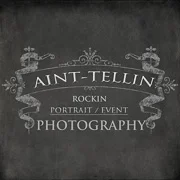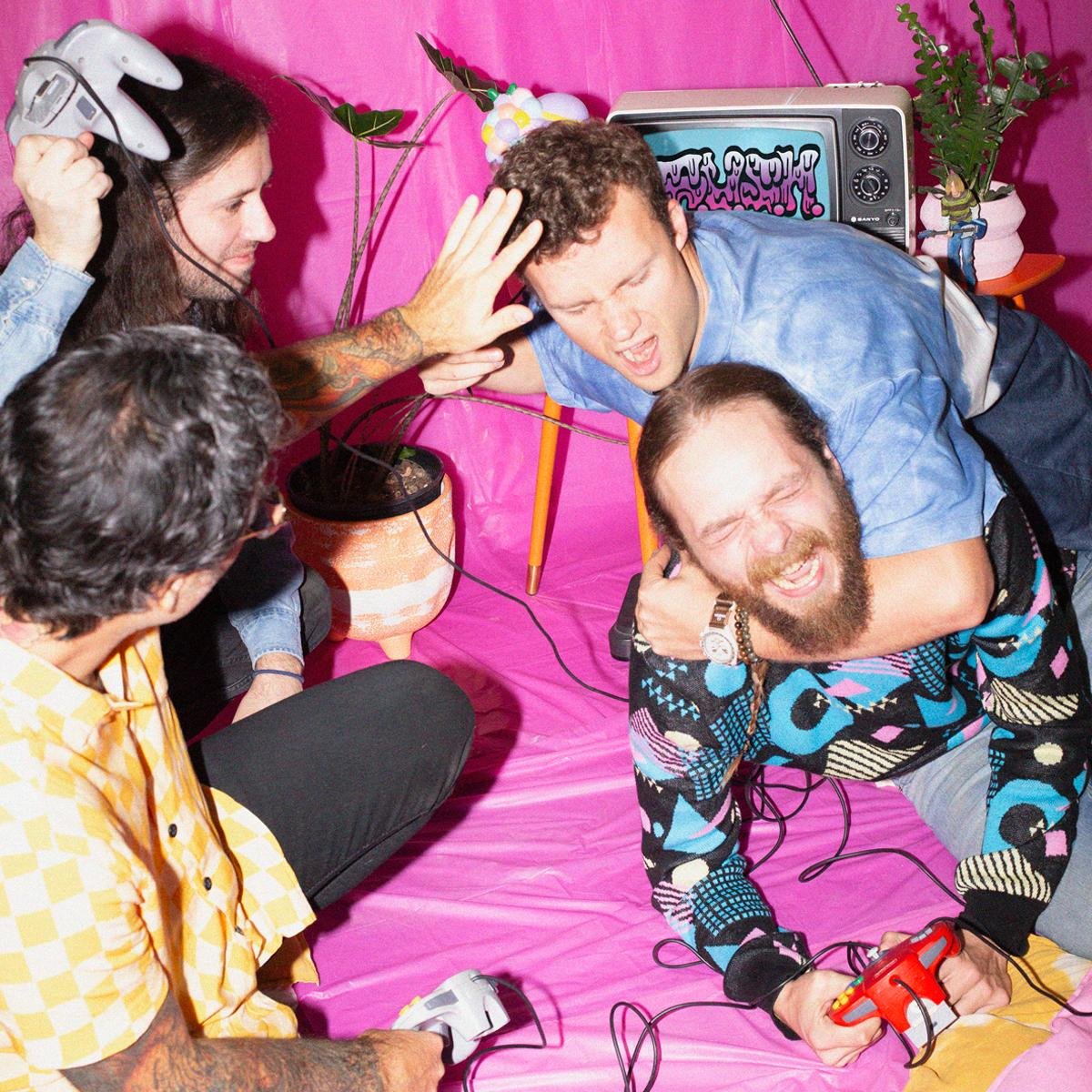Emerging grunge trio G.U.S.H. is leading the charge in 90s' grunge revival, calling to a very specific nostalgia familiar to kids who grew up during the heydays of MTV and Nickelodeon. The alt-rockers are now debuting the gritty second new single, "Down the Drain," which can be found below.
G.U.S.H. songwriter Roger LeBlanc comments on the deep meaning behind the song, "'Down the Drain' is an exploration of grief through the suicide of one of my closest friends. It's a conversation that I never got to have with him and explores the guilt I will always feel for not being there when it mattered most. I miss you immensely Chev. If you or anyone you know is experiencing thoughts of suicide please contact (In Canada) TALK SUICIDE CANADA: #1(833)456-4566 and (In USA) Suicide and Crises Hotline: #988."
Currently, G.U.S.H. is an independent D.I.Y. act and is gearing up to reveal their debut self-titled full-length, for which more info will soon be announced! In the meantime, you can stream the new single across all streaming platforms HERE and peep the artwork and tracklisting below!
The 90s’ was the last decade to champion alternative music; grunge topped the charts as glam metal started to falter, MTV was not only dedicated to serving household audiences with new and legacy music, but also saw the dawn of Mike Judge cartoons that paid homage to rock and metal culture, and even Nickelodeon sought artists such as Devo, Iggy Pop, Blondie, and Third Eye Blind to participate in their children’s programming, be it through musical introduction numbers for iconic TV shows or unlikely cameos. As millennials broke into the aughts and approached their teen years, the alt-mania started to fade away. MTV gradually stopped purveying music and became a hub for reality television instead. Nickelodeon lost its edge and iconic branding. And above all, the rockers who wrote some of the most legendary music of the era started to meet their demise. Now, nearly 30 years after grunge started to take the airways, a new era is being ushered in with G.U.S.H., an emerging band from Canada who is an amalgamation of 90s’ alt-nostalgia.
“90s alternative music played such a huge role for me, especially at such an impressionable age,” says G.U.S.H songwriter Roger LeBlanc. “My two cousins were Gen ‘X’ers and they introduced me to what would be the foundation that I base all music I create off of. Albums like ‘Nevermind,’ ‘Razorblade Suitcase’ and ‘Mellon Collie’ and ‘The Infinite Sadness.’ These all influenced what I love in my music – pop song structure, catchy hooks, guitar driven jams and an upfront drum production, all dripping with angst. Deftones showed me that you can mash up two totally opposing influences and make something unique and powerful.”
LeBlanc continues, “I think we were the first generation to really be left to our own to figure out life. Both parents were expected to be working in the 90’s and that created such a unique form of anxiety in every aspect of life which embodies itself in all the cultural aspects of the time. The cartoons were weird, so were the toys. Video games were really starting to explode and the internet had arrived. I kind of raised myself in that sense. MTV (Much Music in Canada) and PC Gamer magazines is where I got the only news I cared about in those days. I think the main way these play into G.U.S.H. is that it is kind of a call back to a more simple time for me, although the lyrics can be austere, this really is a project about healing and finding yourself again.”
For some, LeBlanc’s foray into alternative music might be a surprise, as he last musical venture was with the now defunct post-black metal horde Numenorean. In some ways, G.U.S.H. is a major diversion from Numenorean, but when one really reads between the lines, there’s a duality within the post-rock elements found within both projects, calling to more nuanced 90s acts like the Deftones, who always painted outside the lines with layers of texture. “I wanted to get back to the basics,” explains LeBlanc of this musical change. “I wanted to explore what made me fall in love with music to begin with. This is music I’ve always wanted to play and to be honest I really pushed to have more aspects of it in my black metal project. I just couldn’t find anyone who wanted to play or write music like this with me, so I just did it myself. Then I surrounded myself with artists who wanted to be there. At the end of the day, I wanted to fall in love with music all over again and just have fun. I feel like I lost that in my previous project and I am so excited to have it back.”
What’s striking about G.U.S.H.’s debut is the stark contrast between the bright music and dark lyrics, reminiscent of the forlorn icons of the 90s who battled their demons publicly through their deep and mournful words against the backdrop of high-energy riffs and beats. “I wanted to convey what it’s like to live with chronic mental illness and the challenges I face being Bipolar,” LeBlanc candidly explains. “I wanted to explore my practice of wearing a mask to protect the ones I love and to be able to function professionally as an artist. The lyrics are what I’m truly feeling and the conversations I have with myself. The cheerful instrumental aspect of the sound is the mask I wear when I’m out in the world. This also plays into the experience of the mood swings and crippling depression associated with being Bipolar.”
The stigma that often goes along with mental health struggles is one that had started to become erased and challenged by the forefathers of the grunge genre. Artists became more open about their battles with depression, anxiety, and addiction, paving the way for individuals to speak more candidly about their own personal demons and to seek help before it’s too late. “I think things got a little more basic in the 90’s with regards to music and being openly pissed off and depressed was okay,” LeBlanc explains. “The faces of music became more about the human condition, not really pretending to be anything else. Like, hair metal in the 80’s which was huge before Nirvana hit the scene. Those bands were very much a suspension of belief with tons of gimmicks. I don’t think there’s anything wrong with that, but I think different generations expect different things from their artists. 90’s grunge and alternative was just a group of folks playing in a band and writing emotionally charged music. The emphasis was on stripped down songwriting and less with the gimmicks or makeup or being ‘heavier’ than the other band. It was about writing good catchy jams and owning the pop influence. I hope that it influences people to not shy away from pop music, just because it’s pop music. There’s so much to learn from other people's creations. I hope that people hear all the influences in our music and go ‘Oh, shit, I never thought to do that, I’m totally going to steal that!’”
While the millennials will never get to experience the haunting live prowess of legends like Kurt Cobain or Layne Staley, and Gen Z starts to see the last of the 90s heroes leave this plain such as Chris Cornell and Scott Weiland, G.U.S.H. emerges as an answer to those yearning for the nostalgia that they never got to experience first hand. The band joins the ranks of some of LeBlanc’s favorite modern acts who strive to capture the cultural essence from before the turn of the century. “There’s a couple of really great modern bands that inspired me on this journey,” he remarks. “Dilly Dally, Dead Soft, Superheaven, Narrow Head, Teenage Wrist, Fleshwater and Loathe. All fucking awesome!” He cheekily adds another piece of his childhood that seems to have made its way into the 2020s. “Also, bucket hats are back…I don’t know if that’s a good thing though?”
As G.U.S.H. makes its debut as an independent artist, the band captures the irony of how musical digitalization has now empowered artists to be their own creators. Napster once caused grievous harm to musicians by eliminating music sales, but now with the rise of digital streaming services and Bandcamp, this unlikely medium has started to allow artists to become DIY entities and not tied to the limiting corporate structure of a record label. As the band begins its journey, there is no doubt that they will be among the leaders of the grunge revival movement, one that kids will rediscover in another 20 years and feel inspired to mimic. “I hope that it inspires people!” exclaims LeBlanc. “I hope that folks will get out of this album what I get out of the albums I love. I also hope it helps all my sad folks feel a little better knowing they aren’t alone. That’s what Nirvana and Deftones did for me. I hope that I can give that back in some way to someone else.”
Recording Lineup:
Roger LeBlanc (Guitar/Vocals)
David Horrocks (Drums)
Josh Schroeder (Bass)
Live Lineup:
Roger LeBlanc (Guitar/Vocals)
David Horrocks (Drums)
Jeremy Shannon (Bass)
Ben Taillefer (Guitar)
Album Cover Artist:
Matthew Springer
Produced, Recorded, Mixed and Mastered by Josh Schroeder
Links:
Photo by: Alaska White

